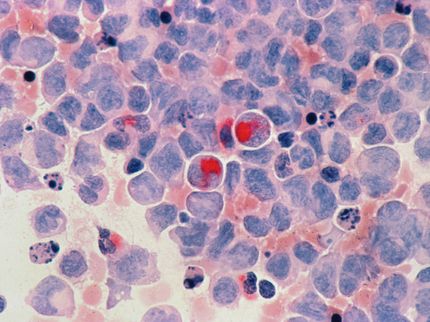Genzyme Announces Results of Phase 3 Trial of Clolar in Adult AML
Genzyme Corporation announced results from its CLASSIC I phase 3 trial comparing Clolar® (clofarabine) in combination with the chemotherapy agent cytarabine (ara-c) to cytarabine plus placebo in relapsed-refractory adult acute myeloid leukemia (AML). Although the study did not show a difference between the arms in the primary endpoint of overall survival, the Clolar combination demonstrated statistical significance across all four pre-specified secondary efficacy endpoints: overall remission rate; complete remission rate; event-free survival; and four-month event free survival.
“Of importance, the Clolar combination doubled the overall remission rate to 47 percent,” said Hagop Kantarjian, M.D., MD Anderson Cancer Center. “Also, we see a 37 percent improvement in event-free survival, a particularly important measure of clinical benefit.”
Preliminary review of adverse events revealed no new safety signals.
“We remain committed to the development of Clolar in adult acute myeloid leukemia,” said Mark Enyedy, Genzyme President of Transplant, Oncology, and Multiple Sclerosis. “We are collaborating with the United Kingdom’s National Cancer Research Institute on a large randomized clinical trial in front-line adult AML.” Data from this study is anticipated in 2011.
The CLASSIC I study was a randomized, double-blind, placebo-controlled clinical trial that compared Clolar in combination with cytarabine to cytarabine plus placebo in patients 55 years and older with AML who relapsed or were refractory after receiving up to two prior induction regimens. The combination of Clolar with cytarabine was developed by Stefan Faderl, M.D. and colleagues at the MD Anderson Cancer Center. Dr. Faderl served as the principal investigator of CLASSIC I, which enrolled 326 patients in North America and Europe. The event driven trial was powered to detect at least a 50 percent improvement in overall median survival in the Clolar plus cytarabine combination arm.
The CLASSIC I study results will be submitted to an upcoming medical meeting and discussed with regulatory authorities.
Topics
Organizations
Other news from the department research and development

Get the life science industry in your inbox
By submitting this form you agree that LUMITOS AG will send you the newsletter(s) selected above by email. Your data will not be passed on to third parties. Your data will be stored and processed in accordance with our data protection regulations. LUMITOS may contact you by email for the purpose of advertising or market and opinion surveys. You can revoke your consent at any time without giving reasons to LUMITOS AG, Ernst-Augustin-Str. 2, 12489 Berlin, Germany or by e-mail at revoke@lumitos.com with effect for the future. In addition, each email contains a link to unsubscribe from the corresponding newsletter.



















































